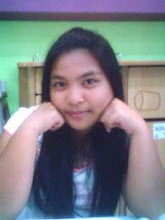All people have the same basic needs: food, shelter and safety. Beyond these basic needs, people develop to satisfy their desire to make their lives better and easier.
Over the centuries, Science and Technology has touched nearly every aspect of people's life. As Science become more advanced, people developed organized ways of study. Science also began to provide knowledge and informations that could developed into new technological advanced.
Some changes in technology result from earlier developments. For example, early automobiles were a great improvement in transportation that have allowed people to travel farther and faster, another one is the improvement in communication that have allowed people to speak directly with others thousand miles away.
Science also help scientists provide a better tools and method in their work such as robots. Robots relieved people from boring or dangerous work, and they can do precision work faster and more accurate. People have more time to rest, relax, and enjoy life. But we must not forget that this technologies have also disadvantages in our lives. For example, the automobiles has resulted in faster transportation, but it may also led to many highway deaths.
Science also provide ways to solve our environment problems. For example, materials can be recycled. As long as we are responsible enough to make our Earth a wonderful paradise.
